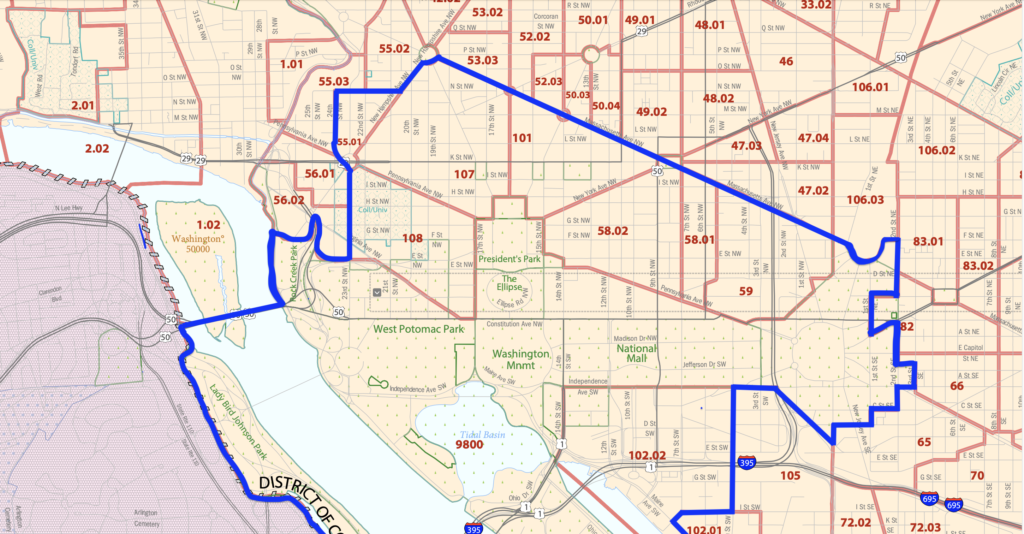The congestion management fee is about creating transportation equity, reducing congestion downtown, and restoring some vibrancy to an area where we are trying to encourage conversions to residential housing.
The congestion management fee would apply only to morning rides (7 a.m. to noon) that end in the downtown zone and afternoon/evening commutes (noon to 7 p.m.) that originate in the downtown zone. There is no fee for rides that go through the zone but don’t stop there. So it largely impacts people commuting to and from work during the busiest times of the day — people we would like to encourage to use public transit.
To build the proposal for both area and time of day, the Committee looked to data from the Department of For-Hire Vehicles. The zone is roughly what is designated the “Central Business District” plus a few adjacent neighborhoods with high congestion rates, including the wharf, L’Enfant Plaza and West End. See the map below.
Studies have shown ride share users – especially commuters using ride share – tend to be higher income than those who do not. The funds raised from the fee would go to free buses, which largely benefits people with less money. Making public transit reliable, affordable, and available is critical to residents, workers and the businesses that rely on them – especially those in hospitality. Getting more people on the bus will also improve service.
Even more than that, the project is about reducing congestion in the downtown corridor and making the downtown more livable. Congestion and gridlock discourage people from visiting downtown. At a time when we are trying to convert office buildings to make the downtown more residential, we should be making it more resident-friendly.
You may have received messaging from Uber, a large company looking to prevent the congestion fee, despite having supported congestion surcharges in 2018, and again last week and using its own surge pricing, in which the cost of rides can double or more.
Some people have asked why we’re not also charging taxis, delivery vehicles, and even private cars. To be frank, I’d like us to explore those, too, and I’m anxiously awaiting the congestion study that was completed two years ago but not released by the mayor. There are differences in the way that taxis – which account for only 7 percent of rideshares – are regulated in the District, making it more difficult to add a similar fee on those rides. The reality is that this is what we can do now in the committee that I chair and is a great start.
I believe we should be envisioning the downtown we want for the future, not just “doing our best” to tweak what we have.
